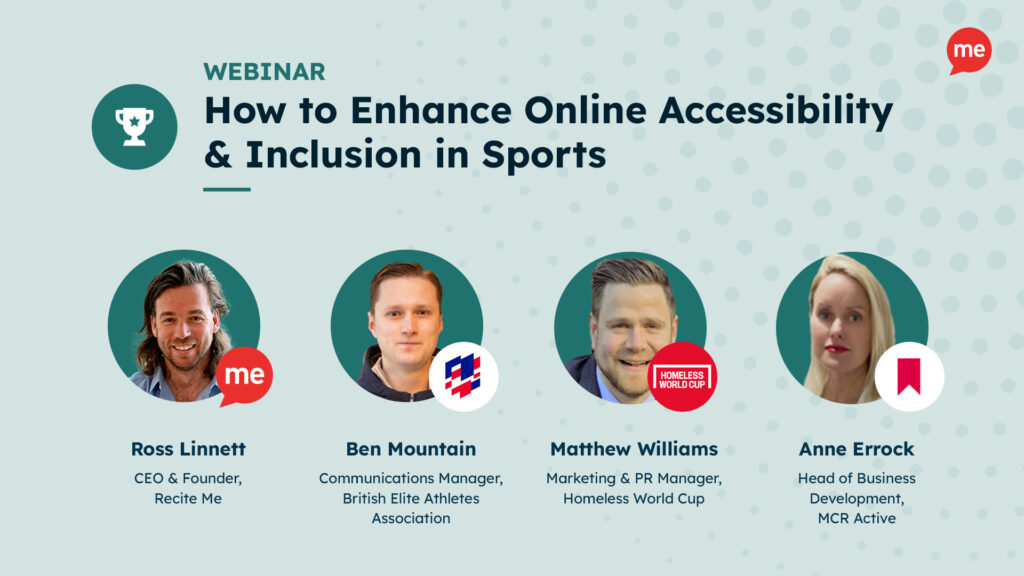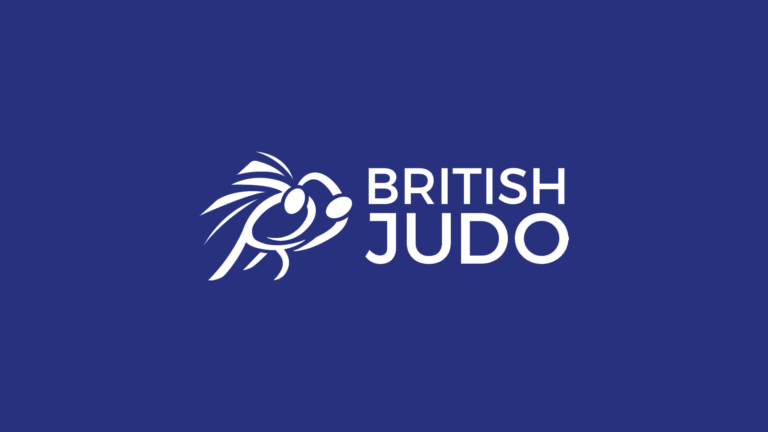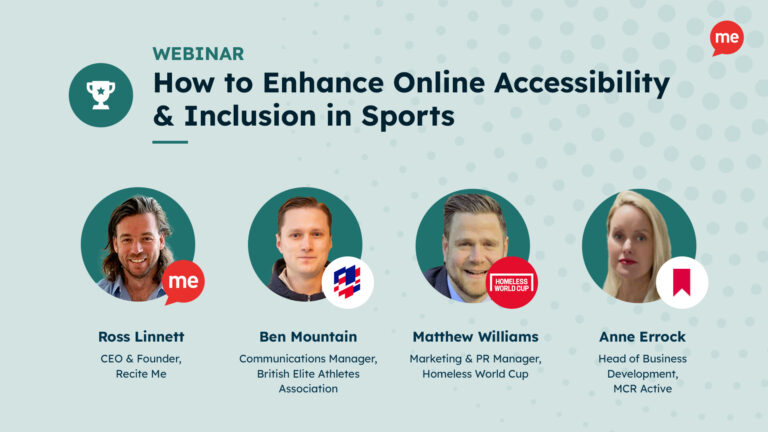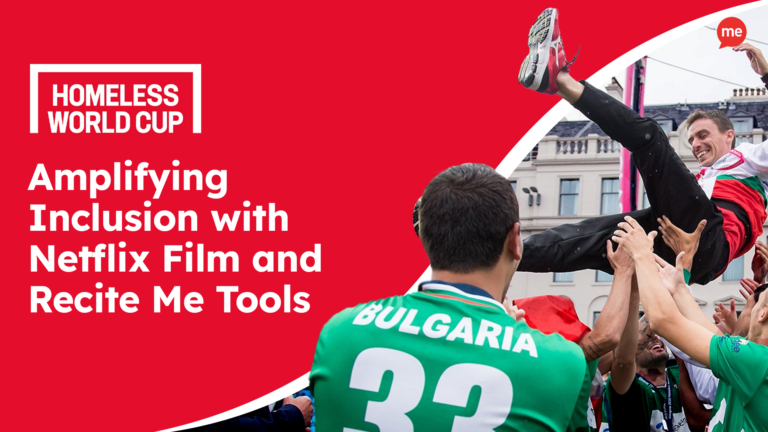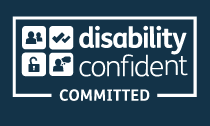The sport and fitness sectors are well known for creating strong community vibes and are recognised as an important means of promoting social inclusion.

While actively participating in exercise has clear physical advantages, there are also several mental health benefits – and you may be surprised to learn that many of these apply to being a spectator too. Simply being included and feeling part of a team environment can have significant positive impacts, including:
- Boosted mood and reducing mood swings
- Reduced depression, stress, and loneliness
- Better sleep patterns
- Increased confidence
- Improved concentration.
But more than anything, sport brings people together. Whether it’s hitting the gym, going to a football match, taking part in a fitness class, or watching the Olympics, sport unites people across geographical boundaries, cultures, generations, and abilities.
So why should it be any different in the online world?
Why is Website Accessibility Important to Sports Businesses?
The vast majority of fitness centres and sporting venues have already made their premises accessible to those with physical disabilities. But online, there are still many people who can’t access the information they need. People look to the internet for many services, including:
- Finding a gym or sports club
- Accessing results/scores
- Checking dates and times of upcoming fixtures
- Buying tickets to events
- Purchasing or renewing memberships
- Accessing online chats with fellow fans

Hidden Disabilities
Organisations need to remember that it’s not just physical disabilities that need to be accommodated. Websites need to be accessible so that people with hidden disabilities like cognitive and neurological disorders, visual impairments, and language barriers can easily access the information they need. This involves making adjustments for internet users with a range of conditions, including:
- Dyslexia
- Hyperlexia
- Dyspraxia
- ADHD
- Autism
- Epilepsy
- Deafblindness
- Colour blindness
- Speaking/reading English as a second language
Online Access Barriers
People who struggle with any of the conditions listed above may have problems accessing, reading, processing, understanding, and navigating information online. Specific access barriers include running into problems with:
- Focusing on relevant sections of text
- Readability due to the font, text size, or spacing of the text
- Poor colour contrasts between background and foreground
- Distractions presented by graphics and image carousels
- Web copy that’s not in their first language
How Many People Are Affected?
To get an idea of scale, let’s have a look at some global statistics:
- 2.2 billion people suffer from visual impairments
- On average, around 20% of the population has a learning difficulty
- Approximately 15% of the population is neurodiverse
- Millions of people speak English as a second language
- About 2% of the population is Autistic
- Over 1 in every hundred people have epilepsy
Sources: WHO, United Nations
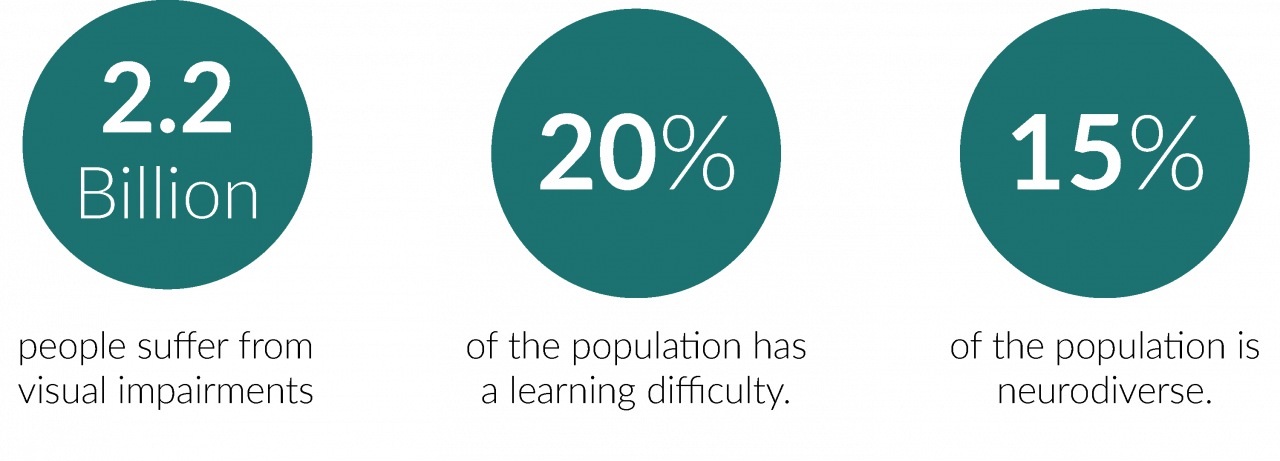
Create an Inclusive World to Unite Members and Fans
Sports clubs and facilities normally generate an incredible family atmosphere and can often form the heart of a community. The sector has a longstanding tendency to support the underdog, and sporting communities are well known for standing up for those who are discriminated against or whose voices cannot be heard.
Being inclusive isn’t just the right thing to do though. There are significant benefits for your business including improved brand image, increased traffic and sales, reduced legal risk, and enhanced customer satisfaction scores.
Just Think…
People could be joining other gyms, clubs, and societies over yours because the information on their websites is easier to read.
There may be hundreds more people wanting to buy a membership to your sports club, but the application forms on your website aren’t accessible to them.
You could fill all of the empty seats at your next event. But people can’t navigate your website to find all the details they need to attend.
People want to get more involved and feel included, but neither your website’s chat functions nor chat forums are optimised for inclusion.
Which Companies Are Leading the Way?
We are proud to work with numerous organisations in the sport, exercise, and fitness sector already. Our client list includes:
- Everyone Active
- HFE
- Newcastle United
- Watford FC
- Leicester City FC
- Southampton FC
- Middles Cricket
- Lords Cricket
- Kick it out
- Basketball Ireland
- American Baseball Coaches Association

“We want to give all supporters easy access to the information they want. We are committed to offering the best online experience to readers worldwide and giving our supporters control of how they view and navigate our website. Investing in Recite Me has brought the accessibility of our sport to the next level.”
Paul Carr, Sports Inclusion Disability Officer, Basketball Ireland
“Our collective aim is to create a culture as varied as that of the great city we are honoured to represent. This toolbar is a tremendous step forward in ensuring that people can access news and information about our club more easily, which will undoubtedly increase our reach and engagement. “
Lucy Oliver, Head of Inclusion, Newcastle United Football Club
How Does Recite Me Work?
Once the Recite Me assistive technology toolbar is installed on a website, access barriers can be broken down. By making single or multiple adjustments to create a genuinely inclusive online experience, users can:
- Personalise font size, type, and colour options to make each web page easier to read.
- Download content as an audio file as an alternative to reading.
- Access text to speak functions in 35 different languages.
- Have text read aloud at varying speeds.
- Utilise a screen mask and ruler for better focus.
- Convert text into over 100 different on-screen languages.
- Make use of the toolbar’s built-in dictionary and thesaurus.
- Switch to “text-only” mode to strip away graphics and page clutter.
Big Data
Over the last 12 months, Recite Me made thousands of website pages accessible. Our data shows that:
- The Recite Me assistive toolbar was launched over 4 million times
- Over 25 million web pages were viewed using the toolbar
- Over 5 million individual styling changes were made using the Recite Me toolbar
Learn More
Now is the time to embrace online accessibility and make your website more inclusive. Together we can make a positive difference.
Recite Me is quick and easy to implement on your website and can usually be installed in under an hour. Our software is already active on over 3700 websites, and every year we help millions of people to enjoy inclusive journeys online.
We invite you to read more about who needs assistive technology, what people say about the Recite Me Assistive Toolbar, and how you can start goal setting for inclusion in our previous news articles.
In the meantime, if you’d like any further advice or information, please feel free to contact our team for more details or book a live demonstration of our toolbar. Alternatively, you could take a trial run of our free accessibility checker, to see how your website performs on a number of web accessibility factors.
On-Demand Webinar: Online Inclusion in Sport
Tune into our on-demand webinar to hear from sporting organisations leading the way in providing inclusive online communications for fans, players and employees.
You will learn how you can engage with disabled, international and elderly visitors via your website. The session will equip you with best practices, hints and tips on how to ensure no one is excluded from your online communications.
